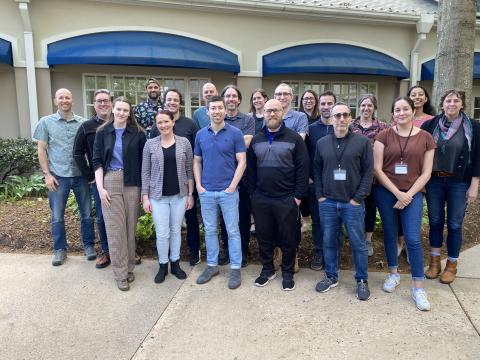
Led by DUPRI Scholar and Professor of Evolutionary Anthropology Herman Pontzer, the Population Ecology, Aging, and Health Network supports collaboration and integration of work with small-scale subsistence populations globally with projects working with rural communities in the United States. Populations in the rural U.S. and subsistence farming and foraging populations in developing countries face many of the same challenges to health aging, including access to healthcare, food insecurity, and economic uncertainty. However, research in these areas (global health and rural US health) has largely proceeded in parallel, without substantial overlap. The objective is to leverage the expertise and experience of these research communities, building a network for collaboration and integration of research programs. A wide range of approaches will be included, with the common theme that researchers assess ecological factors (environmental and/or social determinants) influencing population health and aging.
The first meeting of the Population Ecology, Aging, and Health Network was held virtually on October 9, 2023 over Zoom. Twenty-nine researchers from 12 long-term research projects in human health and aging were present, and each project presented a summary of its major findings to date and current research. Several common themes emerged, including a focus on physical activity and environmental factors (temperature, water and air quality, pollutants) as they impact cardiometabolic and cognitive health with age. A need to harmonize methodologies across sites was broadly recognized, to better address these issues in a comparative manner. Participants were eager to develop collaborative projects with the potential to address larger questions across sites and ecologies that might shed new light on health and aging in rural and subsistence populations.
The first in-person meeting of the Population Ecology, Aging, and Health Network was held at Duke University on April 11 & 12, 2024. Participants from twelve research projects were present. Colleagues discussed common methods and outcomes to adopt across sites in order to address large scale comparative questions. Several project and paper topics emerged from the meeting, with working groups assigned to each, focused on topics such as the impact of market integration on diet, physical activity and health; the impact of air and water quality on health in rural and subsistence communities; the impact of climate and climate change on health, particularly among the elderly; and the relationship between physical activity and both cognitive and cardiometabolic health in these populations. These projects are now under active development. Participants also identified the need for a common repository for methods, protocols, survey instruments, and other resources to support and harmonize research across sites.
